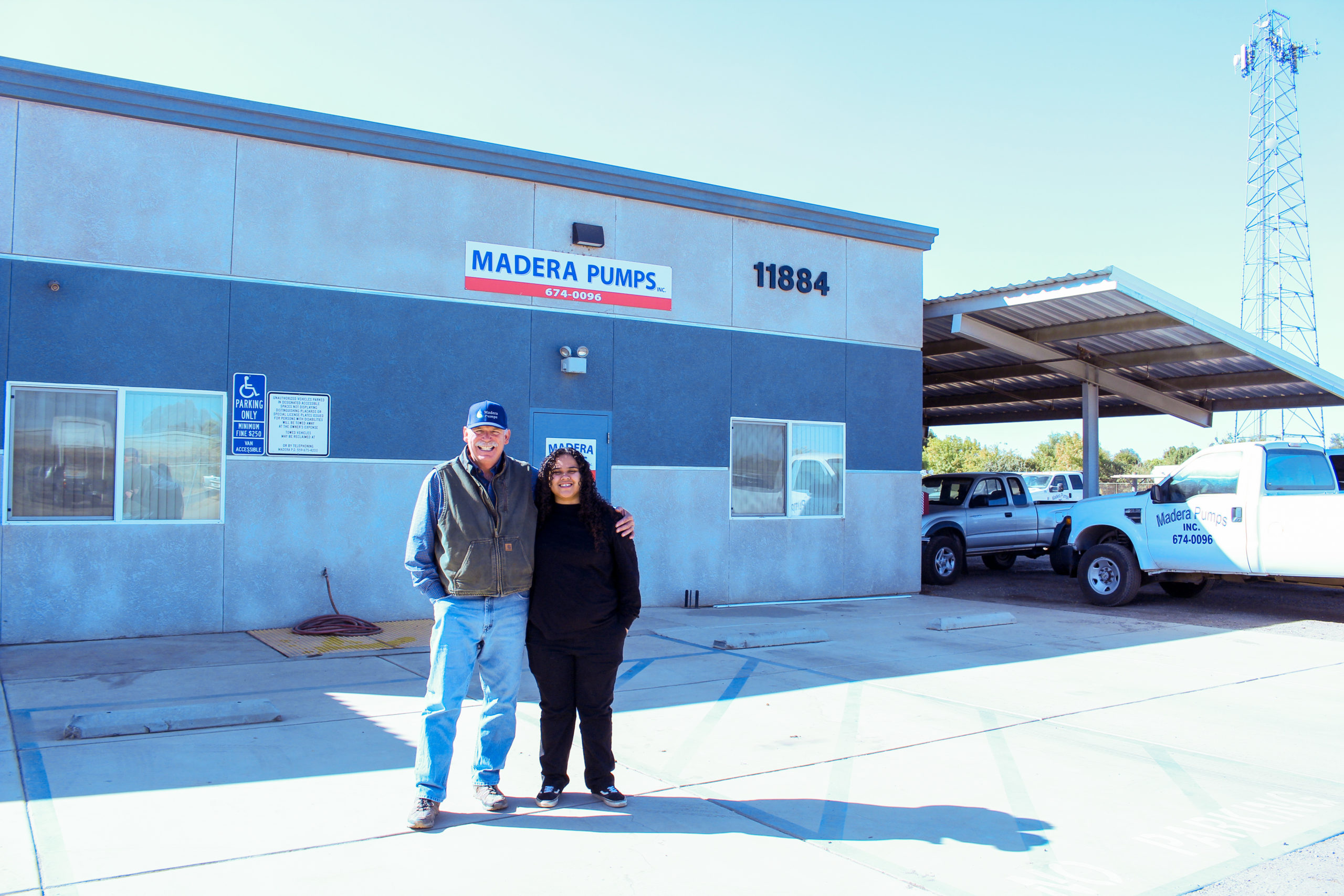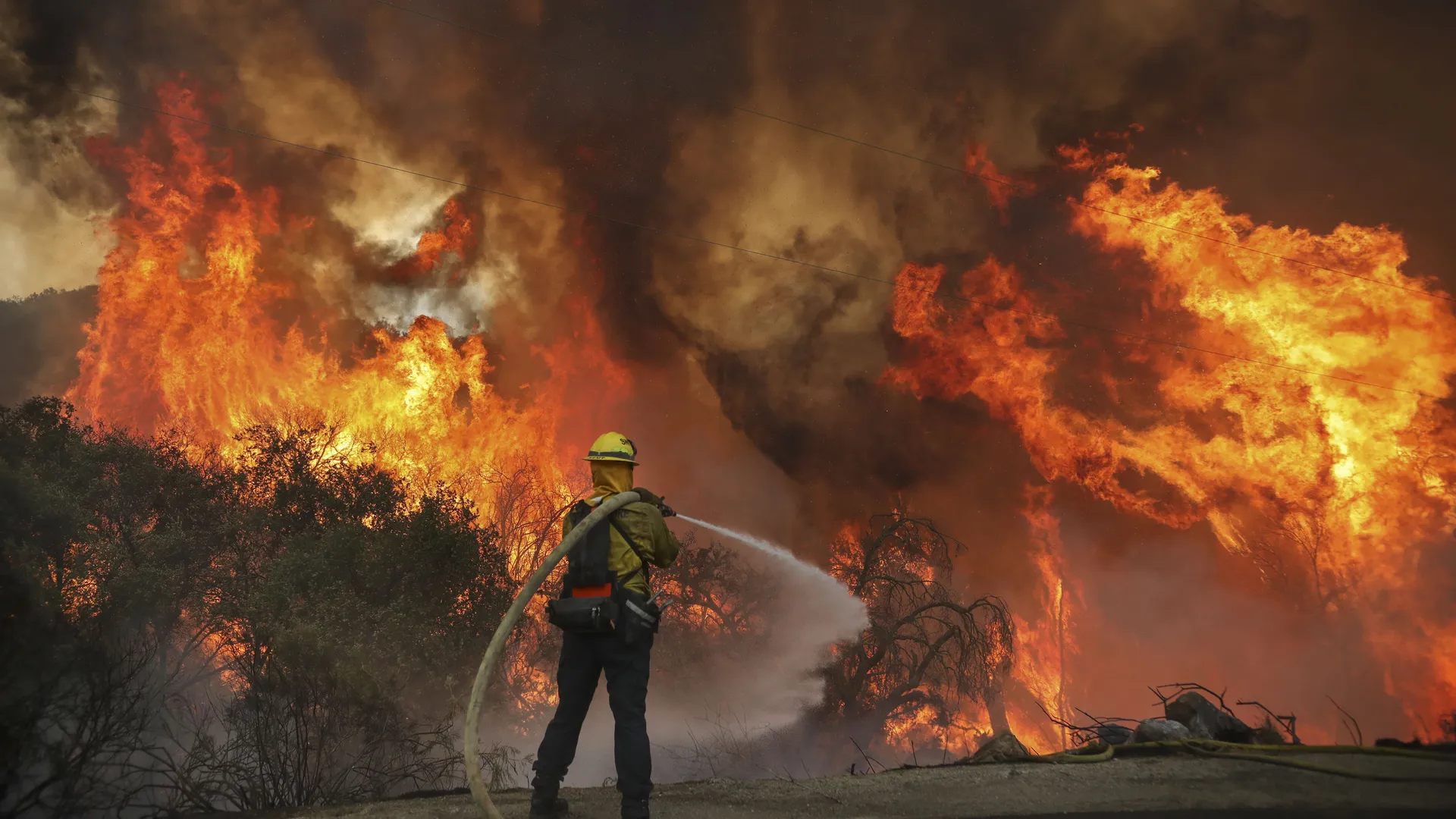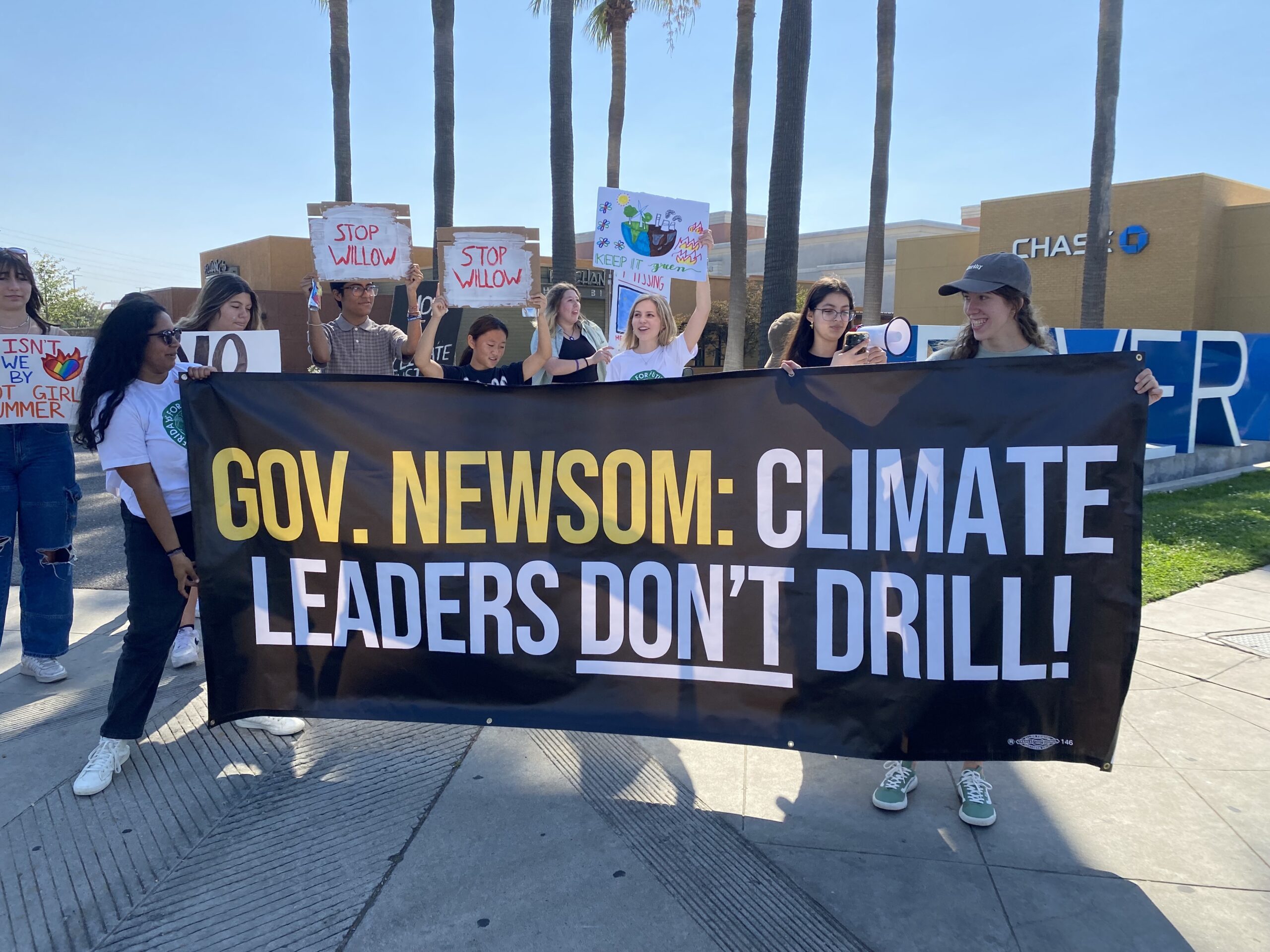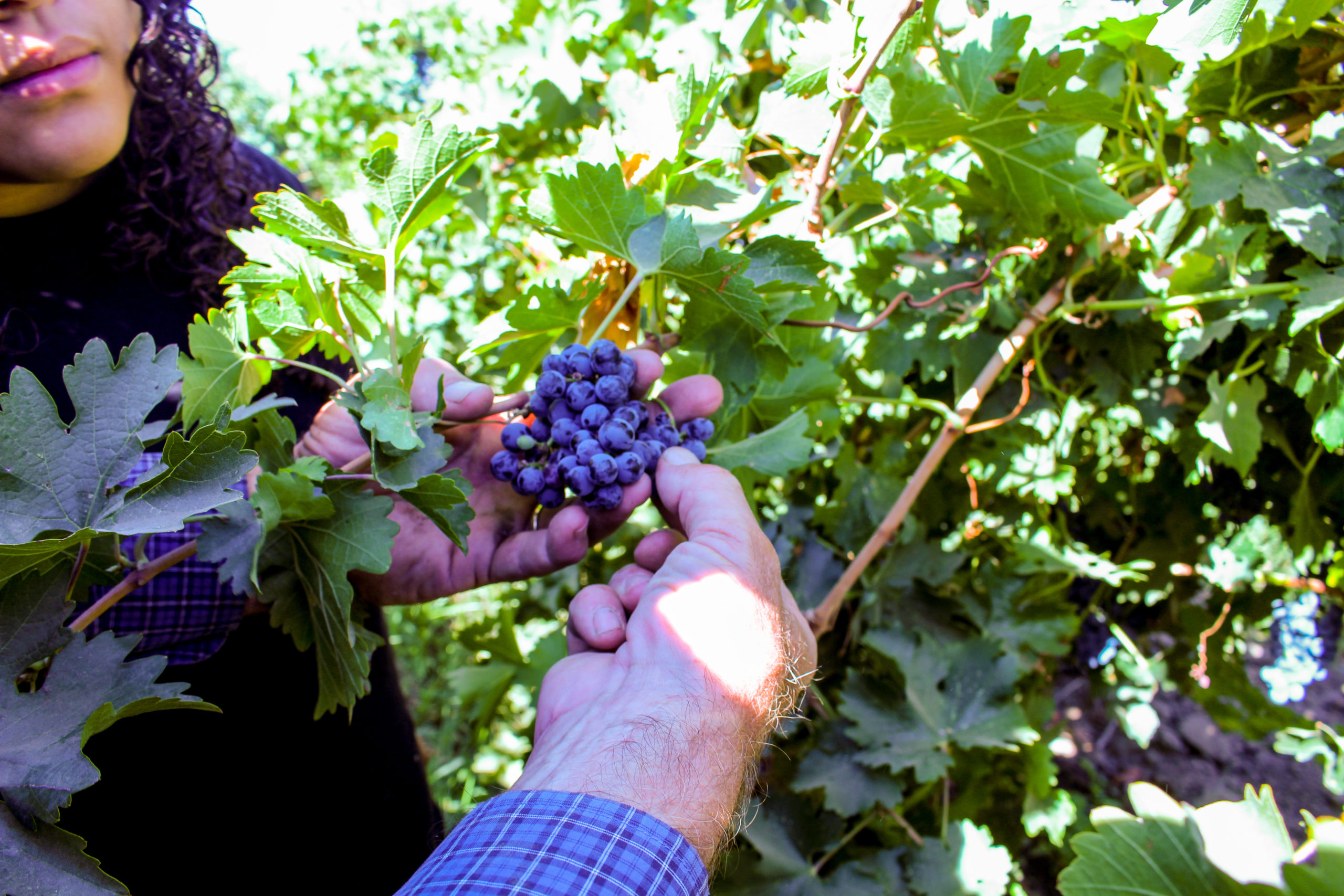
When people think of agriculture, most picture a farmer cultivating their crops and raising livestock. And yes, that’s a huge part of what agriculture is, but it’s also much more than that. Agriculture is a science, a complex and ever-growing field that requires a lot of conservation, management and data.
In the San Joaquin Valley, where agriculture continues to be the backbone of the economy, it becomes difficult to maintain and manage a farm when agriculturalists have to constantly worry about the harmful effects of climate change. Most notably, the severe drought the valley experienced this past decade.
But one Madera farmer is hoping to change the way agriculturalists farm by developing and implementing more environmentally conscious practices in their work.
Matt Angell is a farmer, an entrepreneur and an innovator.
Like most farmers, Angell grew up farming and ranching in both the vineyard and the cattle businesses. He earned his business degree from Cal Poly San Luis Obispo, and, after managing corporate retreats in the Sierras for a couple of years after graduation, he eventually ventured into the irrigation business.
But, before Angell got into the irrigation business, his father sent him to a conference hosted by Allan Savory, a Zimbabwean ecologist.
“He taught something called holistic management,” Angell said, which is a farm planning system that helps farmers better manage agricultural resources in order to reap sustainable, environmental, economic and social benefits.
“He taught techniques on how to use cell grazing, and how to manage and measure our feed. I went from being a cowboy to being a grass farmer,” he continued. “It was an integrated system. I saw through good management and management practice, you start understanding the importance of measurement and record-keeping.”
Post-conference, Angell returned to Madera with a better and clearer understanding of management practices. And that’s when he began his venture into the irrigation business.
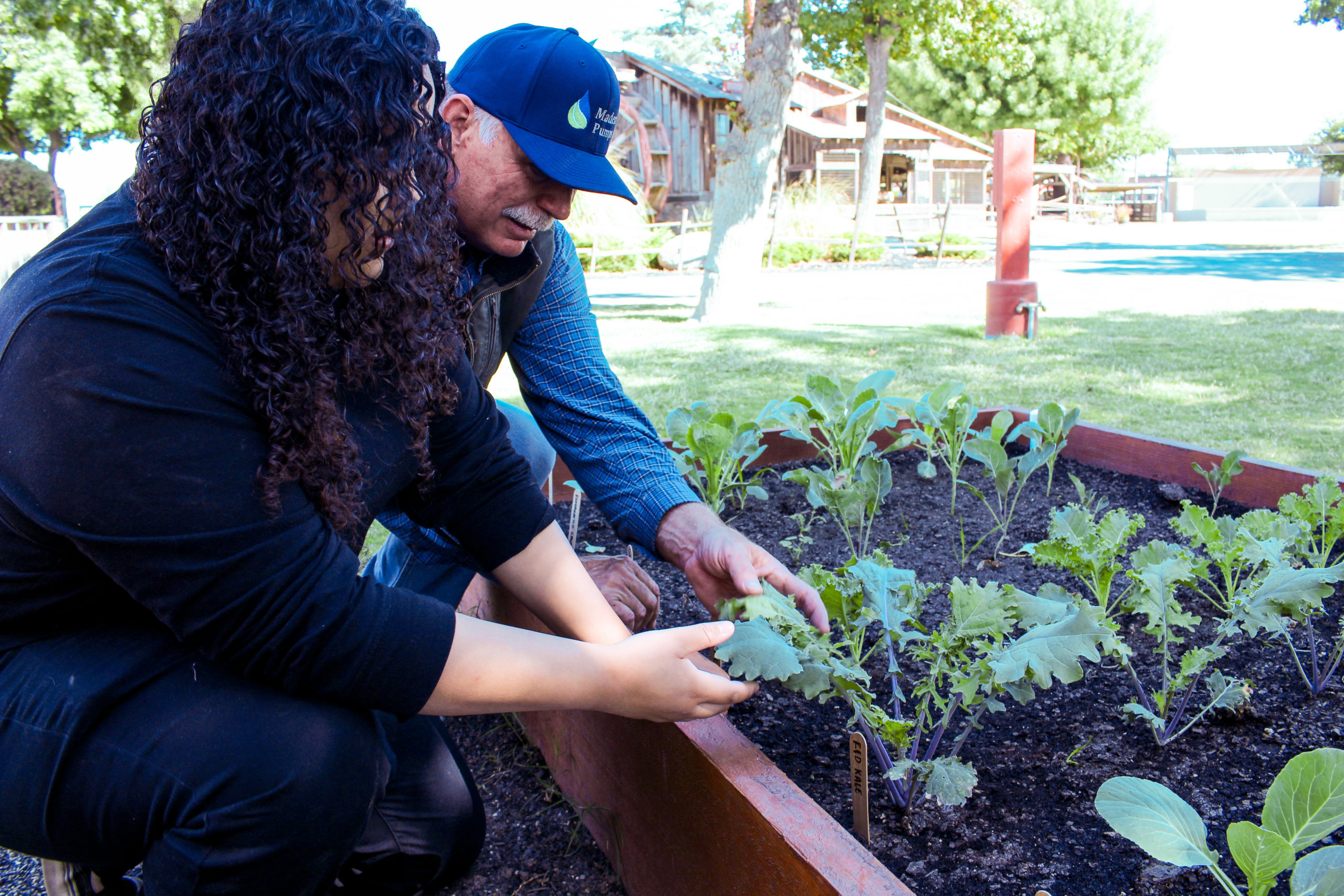
Upon returning home, he noticed that the vineyards around him were all flooding. At that time, drip irrigation was still in its early stages, but Angell knew that installing it anyway was the most practical next step. And, after seeing the work he did, other vineyards began bringing him in to do the same for them.
“I started my career there, and eventually started my own company here in Madera,” Angell said. “But what I learned is that people, even though we built these really good irrigation systems, they were still kind of doing the same practices they did when the vineyards were flooding, so we ended up putting sensors in the ground.”
“We would grab the data with a GPRS modem, and we built our own little software program,” he continued. “You could see how the water reacts in the soil, and how the plants used it. We started measuring temperature and things that went on in the filters. You could look at your phone and see exactly what was going on.”
With his background in irrigation and management practices, Angell is now advocating for Madera County as a whole – especially farmers – to be more conscious of their water usage.
“I’m advocating that Madera County see our water inflows and outflows, and that we actually understand what we need to do and how to manage it,” Angell said. “I think people in general want to do the right thing – it’s just having good information to make those decisions on, and that’s critical. That’s a process of measuring, understanding the information and based off the information, mak[ing] good management decisions and knowing what to do moving forward.”
He plans on implementing this practice throughout Madera by educating the community on how to self-audit.
A self-audit in this capacity is a self-examination on how you are using water and, after seeing the data, adjusting your day-to-day to better manage your use of water. In order to effectively self-audit, people first need to look and understand their irrigation systems.
If the irrigation system is efficient, good. But if not, Angell offers advice on how to best make use of each system.
“The idea is to show someone how to set their timer and their controller – it’s most important that you do,” he continued. “Instead of a 15-minute set, do three sets of 5 minutes. You turn it on and your first set comes on. You go out and put little red flags on it.
“You look around and take a device and stick in your yard,” he continued. “If it says you’ve over-irrigated here, maybe you make a conscious decision to change that sprinkler. You’re making decisions based on the right information.”
Angell believes people have to take an active role in managing their resources.
“The right amount of water will actually grow an amazing crop,” Angell said. “There are three things that a plant needs – water, sun and oxygen. The roots need oxygen. What happens when you over-irrigate? You drown them and then your plants aren’t healthy, and now you’re fighting a plant that’s unhealthy.”
In order to educate folks on this new environmentally conscious practice, Angell believed young people need to be at the forefront of this change and, with that, the NexGen movement was born.
NexGen is a movement that consists of the next generation of young people that will proactively educate themselves and the community on resource conservation. With science and trusted data that is politically neutral, they will facilitate clear and insightful communication to responsibly define and help people change the way they value resources.
“I sit on the local Research Conservation District [RCD],” Angell said. “Our job is to bring innovative technology and educate other growers. As we did that, I saw there was a need for a youth organization.
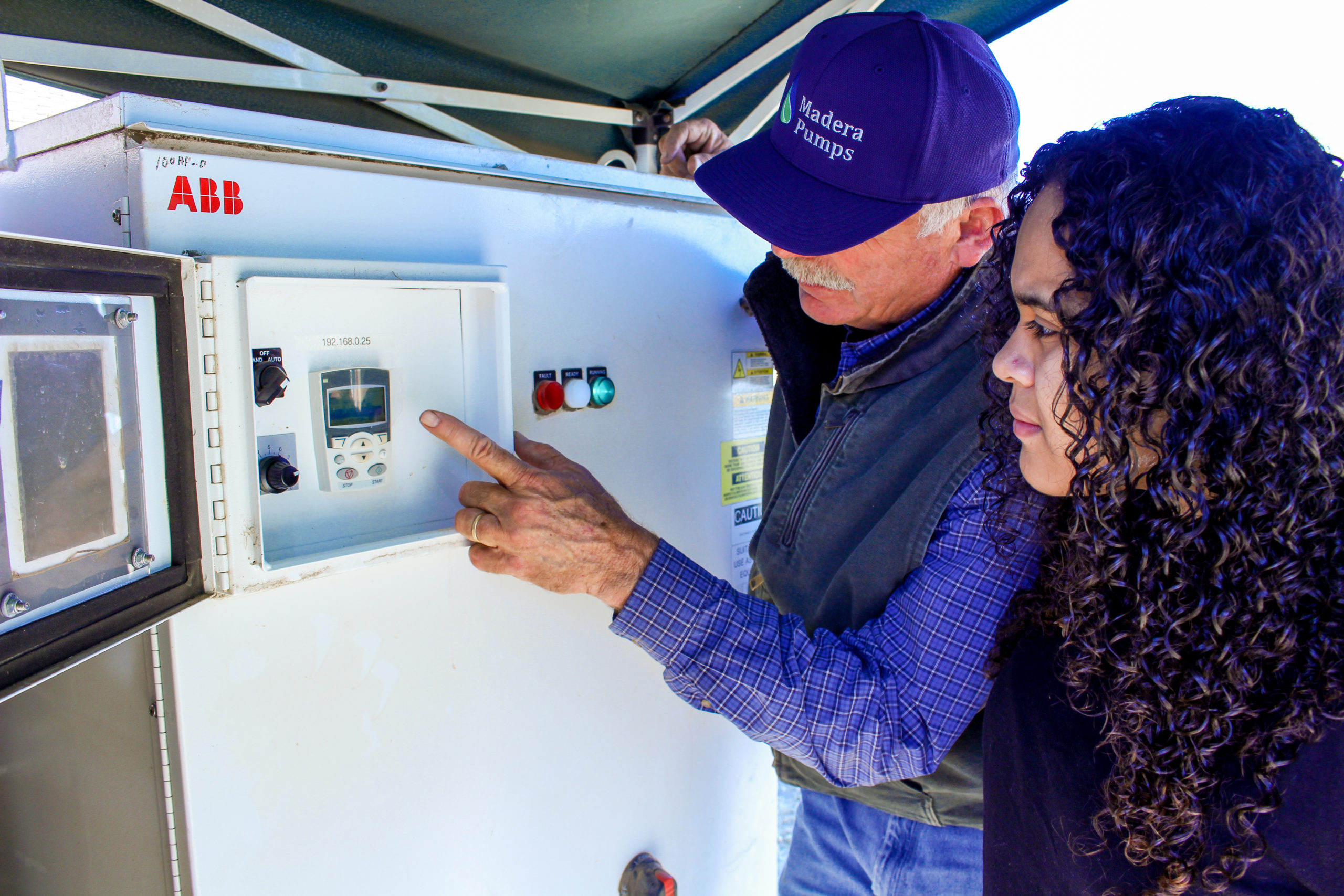
“The RCD is meant for all people, and the RCD’s role is to figure out what their community needs,” he continued. “But what we’re missing is a fire, and young people bring that enthusiasm. They bring themselves, and bring ideas on what they need moving forward.”
Jayla Cuevas, 19, is an assistant project manager at Madera Pumps and one of the young people partnering with Angell to lead the NexGen movement.
“Matt came to me and asked how we can get young people involved,” Cuevas said. “We started thinking, ‘how can we get young people involved in research conservation and in the farming industry and how can we bring it from large-scale to small-scale in cities where people aren’t as educated as farmers?’”
Angell and Cuevas began looking at organizations already established like Future Farmers of America [FFA], but they didn’t want to put a restraint on the movement, limiting it to only FFA youth.
With FFA in mind, Cuevas realized that in high school students have plenty of clubs like FFA that allow them to have the resources and platforms they need to do the work. But when high school ends, those resources disappear.
“When you’re about 35, you already have years of experience, so you’ll start getting more opportunities,” Cuevas said. “But there’s a big gap between 18 and 35 where you may not have those opportunities.”
And so, in June 2019, NexGen was born.
“We had so many different ideas [of where the movement could go],” Cuevas said. “We could have just taught how to self-audit but then we moved forward with teaching people [that aren’t farmers how to grow their own food],” a NexGen project called Food 4 The Future.
Angell said there is a stigma when it comes to young people – that the youth don’t care about what’s happening around them – but he believes that the next generation are incredibly talented, passionate young people that have all the information in the world to make things happen.
“Here’s what I know,” Angel continued. “[Jayla] can walk into my house and change my attitude about how I feel about water. Whereas if I had another farmer tell me, I probably wouldn’t hear them as well. Your child can educate you better than anybody else in the world, and you know why? Because they care.”
“I hear Greta [Thunberg], and I see myself in what’s going on,” he continued. “Instead of having something that’s just for old guys, let’s start a revolution. However we got started, it has to be focused. If we can start educating and get people thinking, we get to change the outcome and that’s all we need to do.”
While NexGen is only in the early stages of their movement, they hope they can provide knowledge and instill confidence in current and future generations of young people. Cuevas envisions and hopes that other young people can see the work that they are doing and replicate it in their own communities.
“We haven’t totally nailed it, but we have an idea,” Cuevas continued. “And we don’t want to nail it. We want people to help us nail it. We don’t want to come in here and say, ‘This is what we are and you’re going to help us.’ We want it to be, “This is what we have, how can you help us grow what we have?’”
For more information about NexGen, visit nexgenrcs.com.
